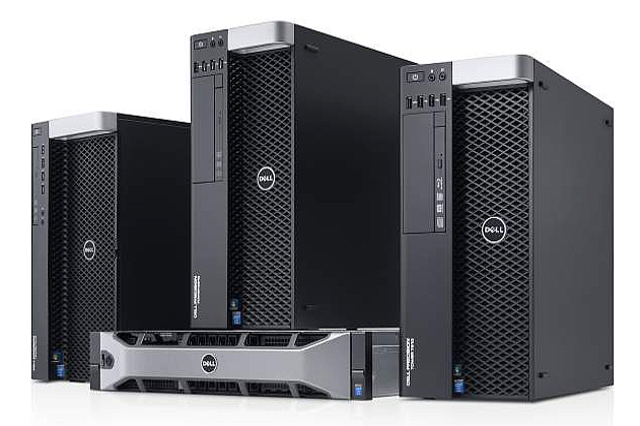
In a nutshell, Dell has outfitted these workstations with Intel Broadwell EP processors, the latest professional GPUs from Nvidia and AMD, up to 1TB of DDR4 memory clocked at a blazing fast 2,400 MHz, and Dell Precision Ultra-Speed PCIe drives, which supposedly offer up to 40-percent faster performance than traditional SATA-based SSD drives. Dell has also expanded its liquid cooling options to keep those components cool and your workspace quiet.
In addition to the hardware upgrade, Dell has injected “exclusive technologies” into these workstations, such as an upgraded Dell Precision Optimizer that tweaks the workstation to run optimally with 22 professional application profiles. Dell will also provide graphics drivers that are qualified to work with the new Oculus Rift, HTC Vive, and other VR-related head mounted displays.
“Working closely with its hardware and software partners, Dell is formalizing its commitment to the future of VR by delivering solutions that are optimized for VR consumption and creation alongside ISV applications for professional customers,” Dell reports.
Dell provides a recommended list of hardware that customers should consider including the Intel Xeon E5-1600 and the E5-2600. On the AMD front, Dell suggests a FirePro W9100 or a Radeon R9 390X graphics card, whereas Nvidia’s list of graphics cards consists of the Quadro M6000, the Quadro M5000, the GeForce GTX 970, and the GeForce GTX 980. Configurations will also need at least 256GB of storage on an SSD, and 8GB or more in RAM.
Naturally, for each workstation, Dell offers several starter configurations that are customizable. For instance, the Dell Precision Tower 5810 comes in three flavors: $1,200 with a quad-core processor, $1,480 with a quad-core processor, and $2,600 with a six-core processor. All three models come with Windows 7 Professional by default along with a 500GB hard drive and 8GB of memory on the two cheaper models (the third model has 16GB).
The Dell Precision Tower 7810 also comes in three customizable flavors: $1,530 with a six-core processor, $2,000 with a quad-core processor, and $3,650 with a ten-core processor. Like the other model, the 7810 defaults to Windows 7 Professional, a 500GB hard drive, and memory ranging from 8GB to 16GB. Default GPU configurations include the Nvidia Quadro K2200 4GB, the AMD FirePro W4100 2GB, and the Nvidia Quadro NVS 310 512MB.
Finally, the Dell Precision Tower 7910 is offered in four base configurations: $2,050 with a six-core processor, $2,999 with an eight-core processor, $4,399 with a ten-core processor, and $5,500 with a ten-core processor. Again, all base configurations use Windows 7 Professional and a 500GB hard drive, but the base memory spans 8GB, 16GB, 32GB, and 64GB. Nvidia professional GPUs are on three of the models while the most expensive of the bunch sports an AMD FirePro W5100 4GB graphics card.
Dell says that these new VR-focused options will go live on its online store beginning April 5, 2016. Additional information about the company’s VR-ready workstations can be found here.



